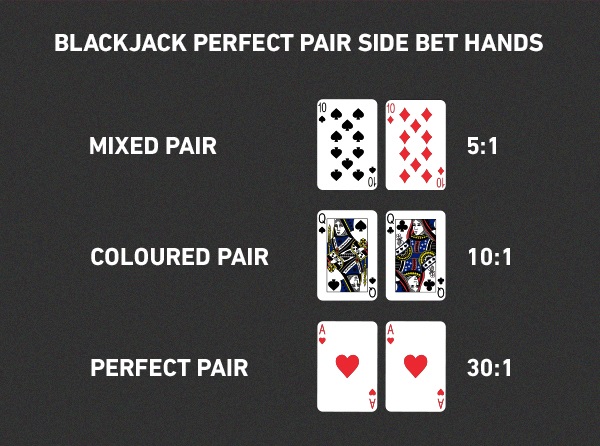
These side bets, often referred to as "sucker bets", are pretty common. Some of them will even be unique to individual casinos. However, we will focus on the most well-known ones in this article and look at them in more detail.
Insurance bet
The insurance bet is a traditional bet that you will come across in most blackjack variations and is available in both land-based and online casinos. Although it has a reasonably high payout ratio of 2 to 1, the vast majority of experienced players know that it's not worth betting on. In today's article, we'll show you why.
This bet protects your hand against the possibility of the dealer getting blackjack, which is an automatic loss for the player. Unless, of course, the player also has blackjack. So whenever the dealer gets a visible ace card, he will offer players to place a side bet equal to half of their current bet.
So the player is betting that the dealer has a hole card of 10 and has blackjack. In this case, the player loses his initial bet but is paid the winnings from the insurance bet at 2:1, giving the player back the money from the initial bet.
Why it's not worth betting on
Although casinos call this bet a protection or insurance bet, it doesn't much protect the player. It is even one of the worst bets in blackjack. Just look at the house edge for each deck size:
- Single deck - 5.882%
- Double-deck - 6.796%
- Four decks - 7.246%
- Six decks - 7.396%
- Eight decks - 7.470%
When it pays to place a side bet
There is only one scenario where it can be profitable to place this side bet. It is the case where you have a blackjack coming up, and you want to secure a positive income from the game round. It is because blackjack is traditionally paid at 3:2. If you are not very lucky and the dealer has a blackjack as well, you will only get back the original amount you deposited. So no matter how it turns out, you are guaranteed a net income.
Although some people always insure their blackjack, in the long run, it is better not to place an insurance bet in this situation as well and instead count on the dealer being unlucky.
Betting on pairs
With the pairs bet, you have the opportunity to bet that the first two cards will form a pair of cards of the same rank.
You can see typical payouts here:
- Pair of different suits - 5:1
- Pair of a suit - 10:1
- Identical pair - 30:1
Although the payout ratios look very tempting, the bet itself is not very profitable in the end. Of course, the house edge on a pairs bet varies depending on the number of decks, but generally, the house edge is on average about 7.3%.
Three of a kind sevens
This bet can go by many names, and you will also find it in many forms at several online and offline blackjacks. Like the pairs bet, the sevens bet is so popular that it has its version of blackjack named after it.
As the name suggests, you can bet on how many sevens you will run out of per hand, if any. Here's a list of the most common payouts for this side bet:
- First card 7 - 3:1
- Two 7s of a different suit - 50:1
- Two identical sevens - 100:1
- Three sevens in different suits - 500:1
- Three identical sevens - 5000:1¨
Please note that individual casinos may have slightly different payouts and somewhat different rules. This is just an example of what is most commonly encountered. As with other side bets, the house edge on sevens far exceeds blackjack's house edge in the base - 11.4%.
The progressive jackpot in blackjack
Similar to slots and other casino games, you will find cumulative or progressive jackpots in blackjack. In land-based casinos, the jackpot can be cumulative across multiple tables. In online casinos, it's much more interesting, as the jackpot money is accumulated from several hundred games. The winnings are then really worth it.
The exciting thing about this side bet is that as the jackpot grows, the house edge decreases until it becomes a player edge. The jackpot usually works by 4 four cards of the same suit wins the total amount. Most often, unfortunately, these are aces.
In addition to blackjack, you can also win a multiple of your bet for less than four aces. This is how Playtech's progressive blackjack pays out, for example:
- 4 identical aces - jackpot
- 3 identical Aces - 500:1
- 4 any aces - 2500:1
- 3 any aces - 250:1
- 2 identical Aces - 100:1
- 2 any aces - 50:1
- 1 ace - 5:1
Specifically, in this case, the jackpot value at which the house edge rolls over is 285,951 units.
However, many blackjack players do not place a side bet on the progressive jackpot even when the expectation becomes positive. Thus, they prefer to stick with the optimal strategy and the low house edge.
